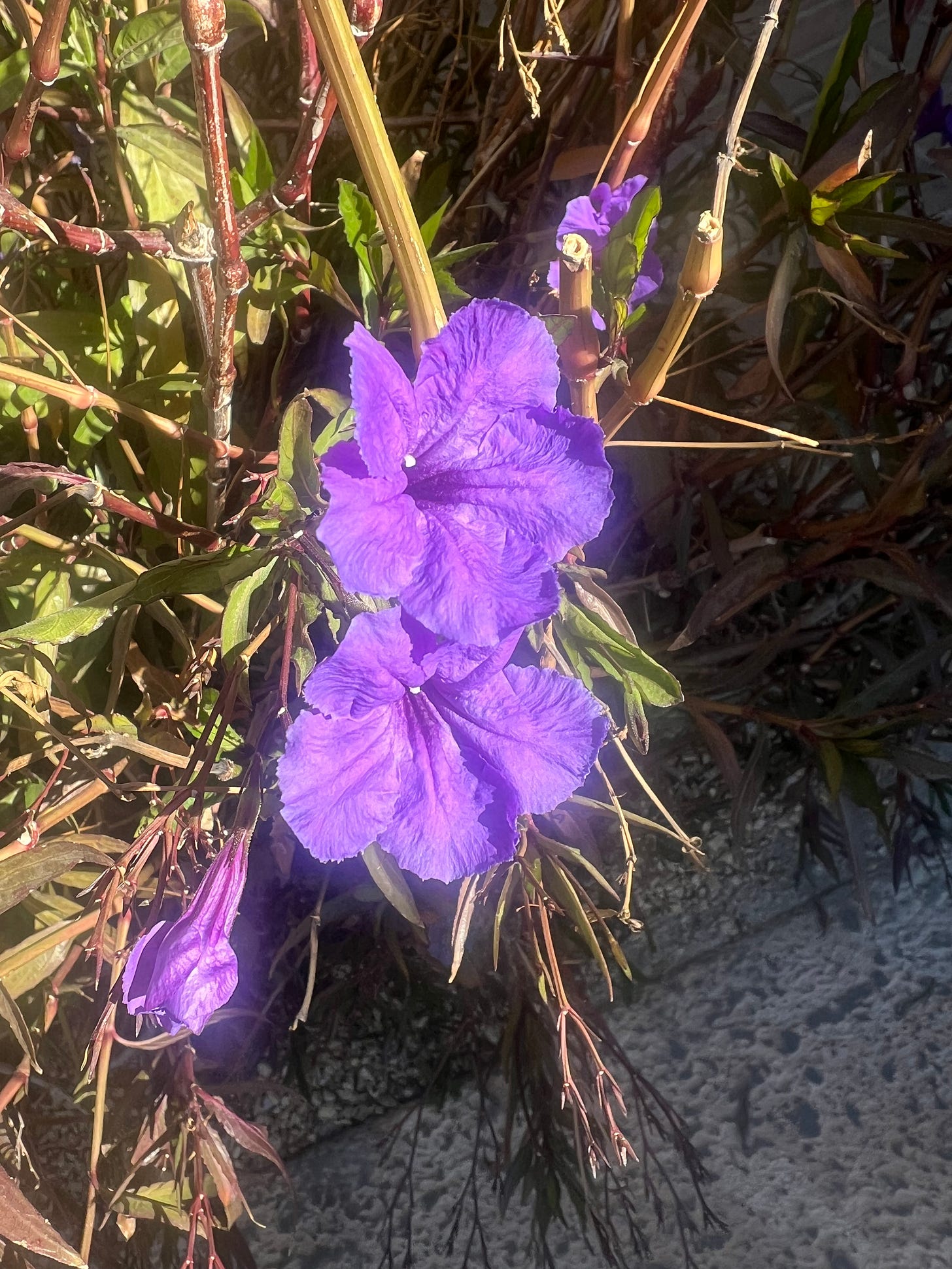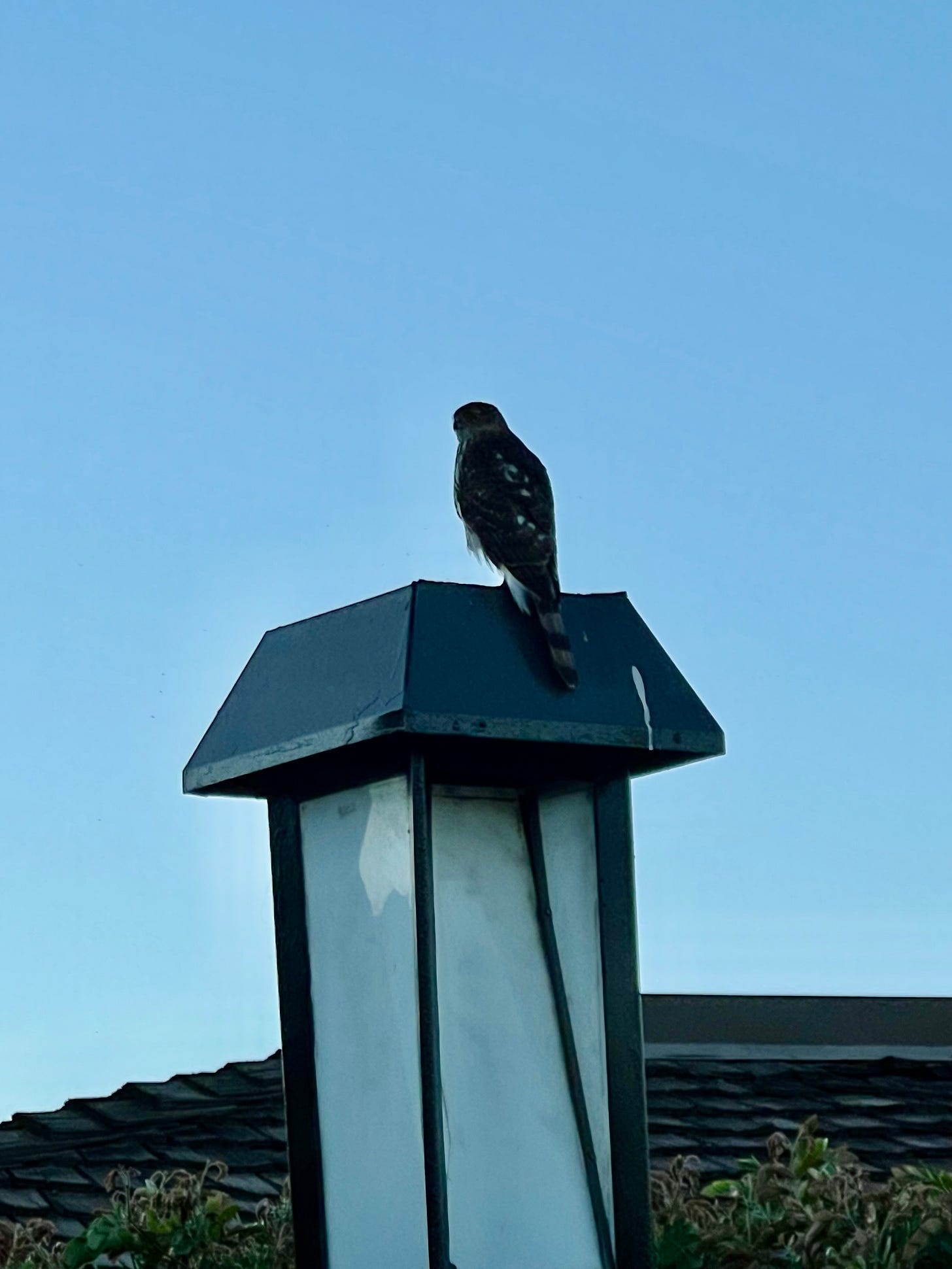I have been quiet lately. Perhaps too quiet or perhaps mercifully so, depending on one’s perspective. My last Backyard Stewardship newsletter went out on December 20, and since then you haven’t heard a peep out of me.
Apologies to those who recently joined this mailing list, as well as those who have stuck with me for almost three years. Special apologies to those who support this newsletter with paid subscriptions.
Part of the reason for my silence is that life at Puddock Hill slows down in winter. If I were there, there would not be much to do in the garden, and I’m in the southwestern desert all winter in any case. As a result, my posts always become intermittent for the first few months of the year.
Of course, most life takes a winter pause in the Northeast. The fish in the ponds slow down, the frogs and turtles burrow into the mud and only occasionally come up for brief gulps of air. The foxes and birds do pass through, but most living things hunker down. Any progress plants make is hidden underground.
But there are other reasons for quiet. We have all been watching in astonishment and dismay as Los Angeles burns. Astonishment because the power of unchecked fire—which is not quiet; it roars—overwhelms our sense of stability and peace. Dismay because—no matter what lies we tell ourselves, no matter what few individuals we try to blame—we have collectively brought this catastrophe upon Los Angeles and ourselves, not for the first or last time. There has always been a fire regime in southern California, predating European colonization, but climate change, which dries the landscape to greater extremes and intensifies the Santa Ana winds, makes wildfires more destructive.
Another reason for my quiet is building dread as we watch a new federal administration make plans to roll back environmental protections with potentially catastrophic implications for the future of our common ecology and our children.
So quiet has settled over me. Not a good quiet. And I’ve been thinking of what happens when quiet comes to the natural world.
We often think of nature’s quiet as a respite from the noise of mechanized society. A relative quiet. But I’ve been thinking more of the quiet that inspired the title Silent Spring: the quiet of absence.
Many of us had our first brush with metaphysics when a childhood friend posed the question whether a tree falling in the forest makes a sound if no one is there to hear it. What about the last of a species that ceases to exist as a result of human actions? The skies of North America were once thick with passenger pigeons—approximately 3 billion birds. Over the course of a hundred years they were largely hunted to extinction, and the last living individual of the species died in the Cincinnati Zoo in 1914. Imagine the zookeeper, accustomed to this bird’s cooing (it was a female named Martha), coming to work one morning to face eternal silence.
I say “largely” hunted to extinction because another anthropogenic cause contributed to the demise of the passenger pigeon: habitat destruction. Not coincidentally, it is one of two main factors behind the accelerating crisis of extinction throughout the world today, the other factor being climate change.
An article in Yale Climate Connections earlier this month noted that 21 species lost federal protection last year due to nationwide extinction, among them eight species of mussel, two fish species, ten bird species, and the Little Mariana fruit bat of Guam.
Did you hear the last Little Mariana fruit bat go? I didn’t. But the world grows a little bit quieter.
The bat’s loss reminds us of why even those people who lack empathy should care. Last year, a study published on “The economic impacts of ecosystem disruptions” came to a shocking conclusion. The author investigated the implications of sudden crashes in bat populations in the United States due to white-nose syndrome and concluded that it led to a nearly 8% rise in human infant mortality in the affected counties.
Wait. What? Yes, human infant mortality.
Bats provide the “ecological service” of consuming crop pests. In their absence, farmers during the timeframe of the study increased pesticide usage by 31% on average, which led to the increase in infant mortality. (The study excluded mortality due to accidents and homicides.)
Did you hear the quiet in the nurseries? Maybe if you lived in farm country you might have. What other creatures silently fell to the pesticides?
My very first entry in Backyard Stewardship was about the peepers in and around our ponds. It concluded:
Although no one lists the three species of frog I’ve mentioned as endangered, and in fact they’re considered abundant in the United States, we have anecdotally noticed diminishing numbers of peepers in our area. Each year, they grow a little quieter, and we dread the possibility they may one day fall permanently silent.
One could go on about the other sources of unwelcome silence. The insect apocalypse is real. Many species of birds that remain technically unthreatened face declining abundance.
Spring may not yet be completely silent, thank heavens, but it is diminished. And we are diminished as a consequence.
And now comes the political assault on our efforts to mitigate the harm. You can understand, I hope, why I’ve gone quiet.
Both habitat destruction and climate change are phenomena we can do something about if we choose. As backyard stewards we direct our efforts to habitat preservation and restoration, which contributes to biodiversity directly while also storing carbon. If everyone did it, that would make a huge difference, but we are relatively few.
An article entitled “Eight simple actions that individuals can take to save insects from global declines” listed “Convert lawns into diverse natural habitats” as No. 1 and “Grow native plants” as No. 2. In other words, restore natural habitats.
Have no doubt, if the insects disappear, our whole natural world goes silent.
Flowers in the desert garden include…
Mexican petunia (Ruellia simplex), not native to the desert:
Native firecracker penstemon (Penstemon eatonii):
Red powder puff (Calliandra haematocephala), a native of Bolivia, growing here in full shade, where no native plants grow:
A cooper’s hawk perches on a lamppost in the neighborhood:







Beautifully written elegy for our time.